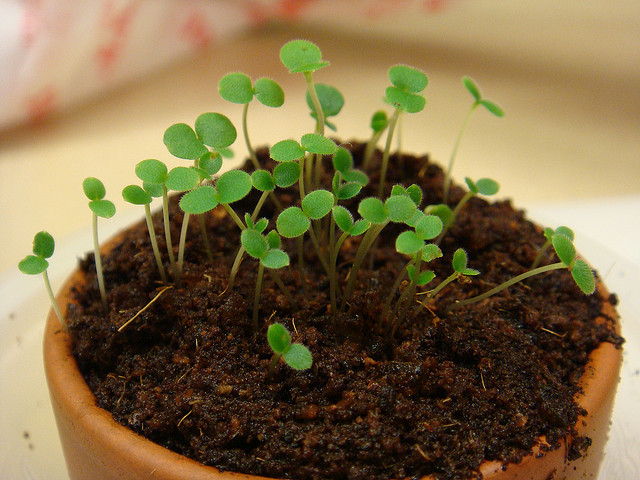One Word to explain the Purpose of Life.
Growth is fundamental to the universe we inhabit and is applicable to not just the individual human, but also our collective species.
Yet the thought generates several difficult questions. For starters, what is life? What about purpose? What does it mean to grow?
These are all challenging concepts to define, especially because there are different variations and perceptions of what they are. Yet it’s not impossible to get a general “feel” for what they mean, so let’s have a crack at it.
Life:
Life is usually defined as plants and animals, however scientists and philosophers haven’t even come up with a proven or clear definition of what life is and why it manifests out of inert material. This thinking leads to questioning where the line is, or even more mind-blowing, whether there is a line at all.
For example, why can a plant be “alive,” but not a rock? At what point does matter come to life? Experts have deliberated over these questions for centuries, and sorry to disappoint, but there is not yet a satisfactory or universally accepted answer.
So, let’s reframe the question. Humans might be one of the few creatures on planet earth that are self-aware, but we can safely assume that animals have their own style of consciousness. This means our understanding of life usually corresponds to some form of “awareness.” because life, including plants, has a tendency to take action relative to the world around it. Bacteria and viruses have this same characteristic too.
This then begs the question; because the molecules and cells of plants and animals “respond” to their environmental stimuli, does that make them aware?
Are atoms, which also behave according to their external conditions, conscious too?
If every layer of material reality potentially has its own form of awareness, regardless of how primordial it may be, is the entire universe conscious? Is it also then, alive?
Purpose:
We all want to have some sort of meaning to our lives and to leave a legacy for our future generations. Some of us embrace it through a metaphysical view and others create it through a pragmatic view. Some do both.
Regardless, to have a purpose is to have a mission that one is living or achieving. What though, is the mission? Who or what determines it? Why must there be a mission in the first place? Do we even have to be conscious of the mission that we have?
One of the primary purposes of animals and plants is to reproduce. Most forms of life need an ingredient from another kind of its species to achieve this, but life that only requires itself will still epigenetically mutate because of the impact of its environment. Growth has occurred, either by way of sharing genes or mutating them.
So when we look at the process of evolution, we immediately recognize its fundamental urge to grow, even if most of the species doing it are not ‘conscious’ of that mission. In this sense, life has an inherent purpose to grow. But what about a conscious purpose, such as that of a human who, for example, believes their purpose is to love and provide for their family?
When we look at this example, it is obvious that they want to not just love and provide, but also develop their love and what they provide for their family. They wouldn’t want to decrease it, would they? In this example, therefore, growth is also integral to achieving the purpose they have attributed to their lives.
Growth:
Let’s take a look at the natural growth that has occurred in the universe.
In a physiological sense, all elements were created by the fusion of the two fundamental elements; hydrogen and helium. In addition, molecules are the result of chemical reactions which continue to form more complex compounds. Cells, which are arguably an initial form of biological consciousness, also change by responding to their environmental stimuli. All of these processes reflect a natural tendency for the universe to grow.
In addition, life has evolved into a plethora of plant and animal species. Naturally, life grew. But what if we consider the particular aspects of a species, or the species as a whole, such as humans?
For starters, our culture, technology, knowledge, language and population have grown. We have also become more creative. On an individual level, the development of our emotional, psychological, philosophical and intellectual capacities, since our birth, appears as a natural endeavor, as long as challenging life circumstances, such as systemic, cultural and individual dysfunctions, don’t impede that process.
Therefore, growing not just physically, but internally, is clearly a natural thing for us to do.
However, given that the ways in which we are meant to grow are relative to each individual, it is up to each of us to figure out what that is in each ongoing moment. For example, we might need to focus more on emotional development than intellectual development, or we might need to prioritize managing our anger over developing our empathy.
In any case, if we accept that we are a conscious life form that has an inherent purpose to grow, on many different levels, then we have the responsibility to facilitate and amplify it ourselves. The beauty is of course, that there is never an end to how far we can develop whom we are, which reminds us of Heraclitus’ famous saying: the only constant is change.
Final Thoughts
If we consider what would be one word for the meaning of life, “growth” is a strong candidate because it is a simple rationale for all the turbulent change that this incarnation brings us. Making the most of it seems a reasonable and smart approach.
From this introspection it becomes apparent that we need to fully embrace who we are in each moment—for all our strengths and flaws—and strive to expand the heart and mind to the best of our ability. Learning the tough lessons and reinforcing them when they pop up again will obviously bring some developmental benefits. The challenges that life offers might invariably be difficult, however there’s nothing wrong with failing at times and aiming to be successful the next.
Even though personal development can bring so much variety, adventure and love to our life, it can also bring loss. It is awesome in some ways and not in others. Yet there’s no point having regrets; if we simply view our commitment to grow as an experience of discovery, wonder and embracing ourselves with all our human imperfections, we continue to become a more genuine version of ourselves and encounter new and exciting pathways to take.
Ultimately, life is a mysterious adventure of growth and not even an egoic death can end our energy.
Author: Phil Watt
Editor: Catherine Monkman
Photo: Debs/Flickr
 Phillip J. Watt lives in Australia. He best identifies as a ‘self-help guide’. His written work deals with topics from ideology to society, as well as self-development.
Phillip J. Watt lives in Australia. He best identifies as a ‘self-help guide’. His written work deals with topics from ideology to society, as well as self-development.
Follow him on Facebook, visit his website or watch the interviews he has done with many experts at The Conscious Society YouTube Channel.
– Come Like Us on Facebook – Check us out on Instagram –
– Sign Up for our Newsletter –














